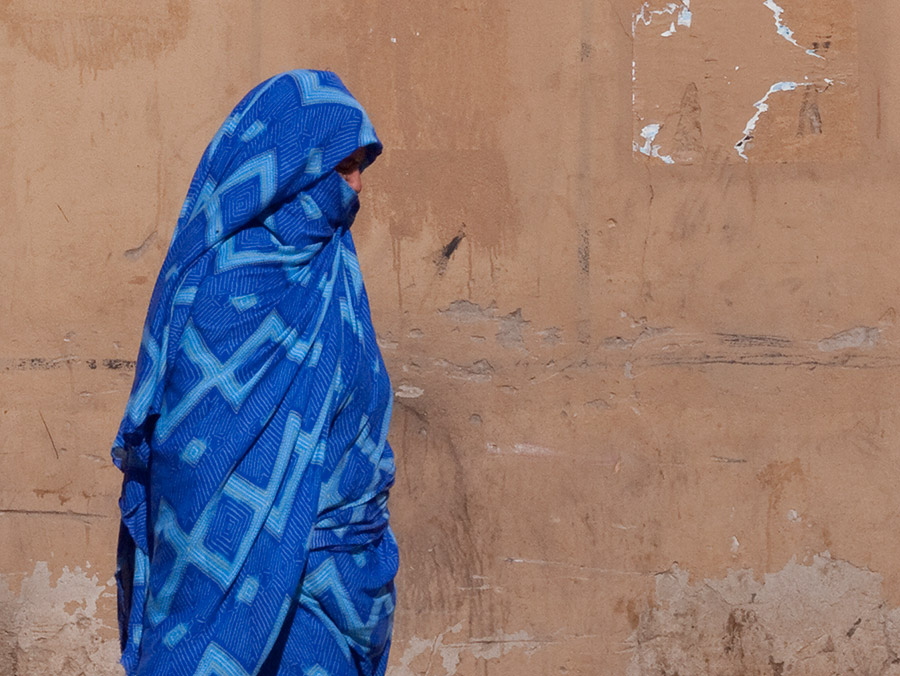It’s one of the most humiliating exercises an adult can experience: language learning by immersion.
I’ve endured countless frustrating moments when my mouth and brain defy my best efforts to recall the right words at the right time.
But then comes the rare miracle when an unfamiliar word or phrase falls effortlessly from my lips. In those moments, I don’t know how I recalled something I never consciously learned. What I do know is that I nailed it perfectly. Those words and phrases become unforgettable verbal gems, miraculously acquired by osmosis and now seeped into functional use.
I can’t tell you how this happens.
But I can tell you about the time I stepped into my alley and faced my unknown powers of recall.
THOSE WORDS AND PHRASES BECOME UNFORGETTABLE VERBAL GEMS.
As I made my way down the alley, a figure walked toward me. It was a woman entirely shrouded in a full-length veil. She had turned and folded the hem of her veil to cover her face against the sun and sand.
“Miriam!” I called out to her without missing a beat.
She waved back discretely. As she got closer, I could just barely see her eyes and the shy smile they reflected. I brushed aside the shock I felt over this surprising episode of natural recall and asked Miriam about her little son Sheikh and about the disabled aunt who lived with her.
Later I marveled that I’d been able to recognize my friend, entirely veiled from head to toe. Without realizing it, I was becoming familiar with nuances that were once entirely lost on me—like the cues of posture and gait. Subtleties were losing their foreignness, and I was beginning to make sense of this world I had moved into.
I WAS BECOMING FAMILIAR WITH NUANCES THAT WERE ONCE ENTIRELY LOST ON ME.
All field workers want to go deep into their host cultures. God wired us for meaningful relationships. And miraculously, He created us to adapt to new norms and acquire new languages.
On a trip to Southwest Asia, I met up with a Frontiers couple living in the poorest Muslim community of a sprawling metropolis. They gave me a tour of their neighborhood, stopping often to greet their friends.
When we paused in the middle of a busy market street, I watched my friends speak with a beggar sitting on the ground. As we carried on, the husband turned to me.
“That’s our good friend, Ali,” he explained. “His youngest boy just started grade school this week.”
They knew this nameless beggar. He was their friend. But for me, a stranger in their neighborhood, he may as well have been an anonymous shadow.
If you visit my host country and walk through my alley, you might also cross paths with an unknown veiled woman—and I’d be the one stopping to introduce you to this anonymous figure, my friend Miriam.
God calls us to cross boundaries and make friends with anonymous beggars and nameless women—beloved children whom He is drawing closer to Himself.
This means we learn their names and experience the miracle of being woven into the fabric of their lives. This means those who were once unknown become dear and recognized. Their names are Ali and Miriam.
Basima had been having the same recurring dream since childhood.
Discover how God used a Frontiers worker to make Basima’s dream a reality.
This account comes from a long-term worker and was originally published in August 2015. Names and places have been changed for security.
Main photo by Evgeni Zotov
